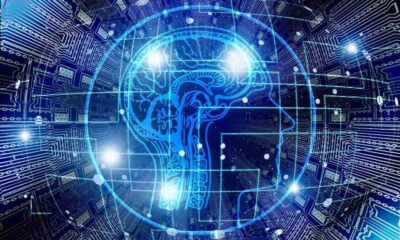Top Stories
Urgent Alert: AI Misleads Users on Public Figures and Facts

URGENT UPDATE: Recent concerns have emerged regarding the accuracy of artificial intelligence tools, as users are reporting misleading information from AI-generated summaries. In a striking example, a user discovered that an AI incorrectly identified his friend, John Arendt, as a candidate in a recent election—despite the fact that he had not filed any nomination papers.
This alarming incident highlights the growing issue of AI “hallucinations,” where these systems produce plausible-sounding but inaccurate information. While AI services like ChatGPT have gained popularity since their launch in November 2022, their reliability is increasingly being questioned.
Arendt’s experience doesn’t stand alone. He also recounted how AI provided flawed historical data about the Summerland Review, the newspaper where he has worked for over 30 years. Despite efforts to utilize AI for faster research, the results were disappointing, featuring incorrect dates and misleading office locations.
“Accuracy matters,” Arendt stated, emphasizing the necessity for users to fact-check AI responses. This sentiment resonates with many who have encountered similar inaccuracies, prompting a reevaluation of how AI tools are integrated into daily tasks.
As society becomes more reliant on AI technology, the implications of these inaccuracies are significant. Users are urged to remain vigilant, employing follow-up questions to verify AI-generated information and to cross-check facts through traditional research methods.
Companies behind AI technology are aware of these flaws and are actively working to enhance accuracy, yet the challenge remains daunting. Just as Uncle Harold, a fictional character known for exaggeration, might spin tall tales, AI systems can mislead users if not carefully monitored.
The evolving landscape of artificial intelligence brings both opportunities and challenges. While these tools are becoming a part of everyday life, the importance of critical thinking and verification cannot be overstated. As Arendt concludes, “That day has not yet arrived” when AI can be fully trusted without thorough fact-checking.
Users are encouraged to remain skeptical and diligent in their information-seeking efforts. The future of AI holds promise, but until then, caution is imperative.
-

 Politics4 weeks ago
Politics4 weeks agoSecwepemc First Nation Seeks Aboriginal Title Over Kamloops Area
-

 World5 months ago
World5 months agoScientists Unearth Ancient Antarctic Ice to Unlock Climate Secrets
-

 Entertainment5 months ago
Entertainment5 months agoTrump and McCormick to Announce $70 Billion Energy Investments
-

 Science5 months ago
Science5 months agoFour Astronauts Return to Earth After International Space Station Mission
-

 Lifestyle5 months ago
Lifestyle5 months agoTransLink Launches Food Truck Program to Boost Revenue in Vancouver
-

 Technology3 months ago
Technology3 months agoApple Notes Enhances Functionality with Markdown Support in macOS 26
-

 Lifestyle3 months ago
Lifestyle3 months agoManitoba’s Burger Champion Shines Again Amid Dining Innovations
-

 Top Stories2 months ago
Top Stories2 months agoUrgent Update: Fatal Crash on Highway 99 Claims Life of Pitt Meadows Man
-

 Politics4 months ago
Politics4 months agoUkrainian Tennis Star Elina Svitolina Faces Death Threats Online
-

 Sports5 months ago
Sports5 months agoSearch Underway for Missing Hunter Amid Hokkaido Bear Emergency
-

 Politics5 months ago
Politics5 months agoCarney Engages First Nations Leaders at Development Law Summit
-

 Technology5 months ago
Technology5 months agoFrosthaven Launches Early Access on July 31, 2025





















